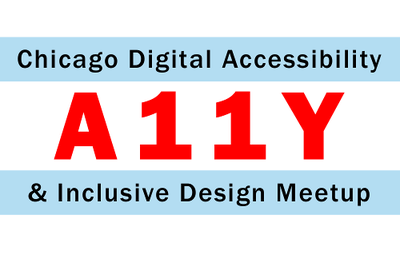 Liz Davis has been a problem solver since birth. Her experience in dealing with the obstacles of an environment lacking accessibility has granted her a useful perspective in handling design. She’s currently a UX Designer in Chicago at QuikOrder and pursuing a graduate degree in HCI at DePaul University.
Liz Davis has been a problem solver since birth. Her experience in dealing with the obstacles of an environment lacking accessibility has granted her a useful perspective in handling design. She’s currently a UX Designer in Chicago at QuikOrder and pursuing a graduate degree in HCI at DePaul University.
Liz will be presenting “Including people with disabilities in the process.” We asked Liz a few questions about her experience with accessibility, leading up to Accessibility Camp Chicago.
How did you initially get involved with digital accessibility?
I’ve been involved specifically with digital accessibility for over a year, but accessibility has been part of my life for a long time. Being a wheelchair user my entire life has helped me become an advocate. I’ve worked in web for 5+ years and the transition to digital accessibility advocacy was a natural move.
Do you feel that interest in accessibility is picking up momentum? How have you seen this?
I have seen a great increase interest in accessibility. We’ve had clients who brought it up and it’s a big topic in some graduate courses. It’s great to see schools also spreading awareness in their digital programs. I hope we are finally moving away from designing for the 80% and leaving out the other 20%.
What are the major challenges that you are seeing in making sites and applications accessible?
Including people with disabilities be involved in the process. Whether they are developers, QA testers, or users. Having someone with a disability involved is a huge benefit when designing an inclusive experience.
What are the examples of success that you have seen in the wild?
When something added for a person with a disability helps those you didn’t expect. Sure your target user was someone who is deaf or hard of hearing, but captions reach so many more. Those wins of inclusive design are what get me excited about accessibility.
What is the one thing that excites you the most about your work in accessibility?
My most exciting moments are when I get to see a client or fellow designer start to understand why it’s important. They see how big of a difference they can make by simply caring and talking to those around them. It’s a wonderful thing to care.
If you haven’t already registered for Accessibility Camp Chicago, register today!
